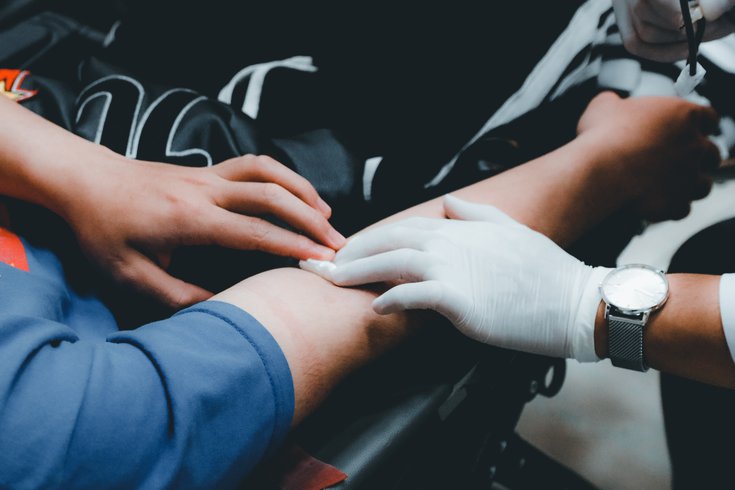
August 07, 2023
 Nguyễn Hiệp/Unsplash
Nguyễn Hiệp/Unsplash
The American Red Cross implemented new guidelines for blood donor eligibility that are in line with recommendations from the Food and Drug Administration. The new guidelines eliminate barriers based on sexual orientation.
The American Red Cross has implemented a new blood donation screening process that expands eligibility among gay and bisexual men.
Under the new screening process, which follows guidelines updated earlier this year by the Food and Drug Administration, all blood donors will answer the same eligibility questions and be assessed based on individual risk factors, regardless of gender or sexual orientation. Previously, the FDA recommended that men who have sex with men remain celibate for three months before donating in an effort to reduce the likelihood of an HIV-infected donation.
The questionnaire that determines donor eligibility now asks all people about past and present sexual activity, including questions about anal sex, history of sexually transmitted infections, HIV status and new sexual partners within three months of an attempted donation.
Any person who has had new or multiple sexual partners in the previous three months, as well as anal sex in that time frame, will be asked to wait three months to donate blood from the last anal sex contact.
Those who have had anal sex in those three months may be eligible to donate so long as they did not have sex with new or multiple partners during that time. And people who have been deferred under the FDA's previous guidance can be reevaluated.
"The idea is that we are no longer asking different questions to men and to women, and we're trying to be more holistic about how we assess the risk of a donor as far as infectious disease," Dr. Julie Karp at Thomas Jefferson University Hospital told KYW. "There was no really good scientific reasons anymore. And arguably there have been some scientific reasons to move forward before this. But I think the time was right to do it."
People who are HIV-positive are still ineligible to donate blood, even if their viral load is undetectable, as the infection can still be transmitted through a blood transfusion. Those taking medications to prevent HIV infections, like PrEP, are asked to wait three months from the last oral dose or two years from the last injection to donate. PrEP and similar drugs can interfere with the detectability of HIV in diagnostic testing.
Anyone who has taken antiretrovirals to treat HIV is permanently ineligible to donate blood, as the drugs do not fully eliminate the virus from the body.
Anal sex has a statistically higher chance of HIV transmission than vaginal or oral sex due to a greater potential for the exchange of blood, and condoms fail more in anal sex compared to other forms of sex. While the Red Cross acknowledges that the focus on anal sex may feel as though it still targets gay and bisexual men, the organization states that it is "committed to achieving further progress" and making the donation process more inclusive.
The FDA lifted its lifetime ban on gay men donating blood in 2015. In 2020, the FDA eased donation rules for gay and bisexual men, putting the three-month deferral in place.
LGBTQ organizations like GLAAD have long opposed restrictions on gay and bisexual men donating blood, claiming that their "dark and discriminatory past" was rooted in homophobia. The lifetime ban was implemented in 1983 at the start of the AIDS crisis, when little was known about how HIV was spreading.
Among the people who are now able to donate blood to the Red Cross is Andrew Goldstein, a cancer researcher from Los Angeles who was a regular donor before the FDA's previous policies made him, a gay man, ineligible to donate. In 2021, Goldstein registered as a participant in the FDA-funded ADVANCE study, which explored the possibility of assessing donors individually.
The study, along with similar policies put in place in the United Kingdom and Canada, led to the FDA's revamped guidelines for donor eligibility. Goldstein told the Red Cross that he's proud to have played a part in that change.
"There's so much in the world that you can't help with, and sometimes you have to see people going through difficult times, but something like giving blood feels like something so small you can do, and it means a lot to me that I'll be able to do that again," Goldstein said.
Donors can check the Red Cross website for more information about eligibility requirements and what information will be asked during the screening process.